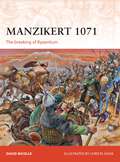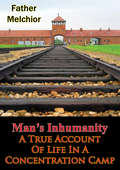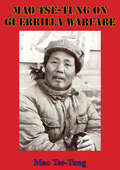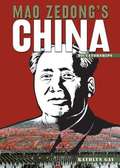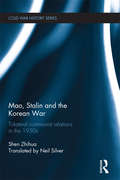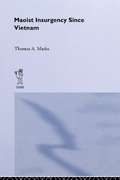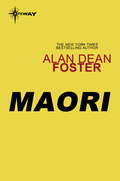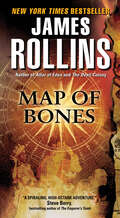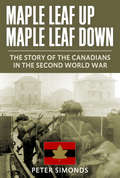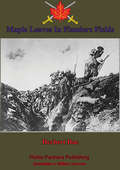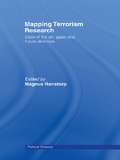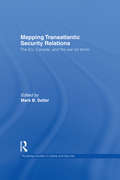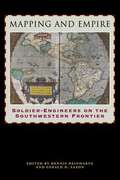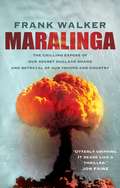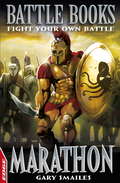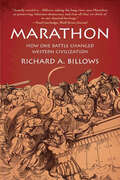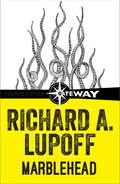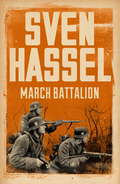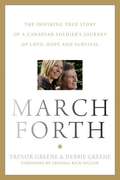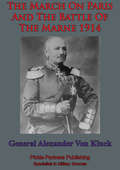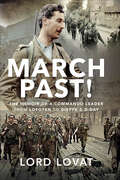- Table View
- List View
Manzikert 1071
by David Nicolle Christa HookOn 26 August 1071 a large Byzantine army under Emperor Romanus IV met the Saljuq Turk forces of Sultan Alp Arslan near the town of Manzikert to the far east of the Byzantine Empire. The battle ended in a decisive defeat for the Byzantine forces, with the wings of the army routing following withering Turkish arrow fire, and the centre overwhelmed, with the Byzantine emperor captured and much of his fabled Varangian guard killed. This battle is justifiably regarded as a turning point in Middle Eastern, European and to some extent even world history. It is seen as the primary trigger of the Crusades, and as the moment when the power of the East Roman or Byzantine Empire was irreparably broken. The Saljuq victory opened up Anatolia to Turkish-Islamic conquest, which was eventually followed by the establishment of the Ottoman state which went on the conquer south-eastern and much of central Europe, the entire Middle East and most of North Africa. Nevertheless the battle itself was the culmination of a Christian Byzantine offensive, intended to strengthen the eastern frontiers of the empire and re-establish Byzantine domination over Armenia and northern Mesopotamia. Turkish Saljuq victory was in no sense inevitable and might, in fact, have come as something of a surprise to those who achieved it - at least in proving to be so complete. It was not only the battle of Manzikert that had such profound and far-reaching consequences, many of these stemmed from the debilitating Byzantine civil war which followed and was a direct consequence of the defeat.
Man’s Inhumanity - A True Account Of Life In A Concentration Camp
by Father Melchior"Many impressive books have been written about German horror camps where, from 1939 until 1945, human beings were subjected to degrading experiences, or were destroyed like swarms of helpless insects.EThe camp where I stayed for several years has received less publicity than the larger and more smoothly run DACHAU and RAVENSBRÜCK camps where mass extermination was carried out with cold efficiency.Our camp was called BRZEZINKI, in German BIRKENAU. Some prisoners nicknamed it RAJSKO. In literal translation this means "HEAVEN-LIKE".In Brzezinki-Birkenau, mass murder was carried out on such a fantastic scale that the executioners had set up five crematories. Almost all the inmates were destroyed and only a few lived long enough to greet their liberators. Except for one book written by a Polish woman thus far, no report has been graved on flintstone by any of the liberated Polish Jobs.I am not a writer and my story will be a plain and frank account of things which I have witnessed and experienced in nine prisons and in three concentration camps, from which I was miraculously saved by God. It is not my aim to evoke your pity, nor to arouse your wrath against the Germans. I wish only to help you to realize what happens when man rejects God and when his passions become his sole master. He will then commit every kind of inhuman crime, whereas if he follows the Golden Rule he will withstand the most ruthless pressure and even in the midst of inhuman sufferings will desperately cling to his faith.I wish to stir the conscience of statesmen so that they may unify their efforts in preventing a repetition of the crimes committed in the name of an omnipotent and evil deity--the STATE."-Foreword
Mao Tse-Tung On Guerrilla Warfare: Mao Tse-tung On Guerilla Warfare
by Mao Tse-Tung General Samuel B. GriffithThe Classic text on Communist Guerrilla warfare includes an excellent introduction by Brigadier General Samuel Griffith USMC who was also the translator."In 1937 Mao...wrote a succinct pamphlet that has become one of the most influential documents of our time....the first systematic analysis of guerilla warfare...The widespread applicability of Mao's doctrine stems from his realization of the fundamental disparity between the agrarian, peasant-based society of China and that of pre-revolutionary Russia, or any urban society....he had to employ tactics and appeals appropriate to the peasant."
Mao Zedong's China (Dictatorships)
by Kathlyn GayIn 1949, Mao Zedong came to power in China after a long and brutal civil war. He and his Chinese Communist Party immediately set out to transform their nation into a Communist state. They seized land from wealthy and middle-class farmers and distributed it to poor peasant farmers. The government also took over ownership of all industries. Citizens who resisted these changes were branded ?counterrevolutionaries, ? and thousands were imprisoned or executed. Within a few years, Mao had turned China into a totalitarian state, controlling all aspects of his citizens? daily lives. In the 1960s, he sought to wipe out what remained of traditional Chinese society by launching the Cultural Revolution. Millions died as the country erupted into spasms of mob violence. Yet, despite the tumult, Chairman Mao remained a revered, almost godlike figure, worshiped by his people. How did he do it? Learn more about one of the most powerful and controversial figures of the 20th century.
Mao, Stalin and the Korean War: Trilateral Communist Relations in the 1950s (Cold War History)
by Shen ZhihuaThis book examines relations between China and the Soviet Union during the 1950s, and provides an insight into Chinese thinking about the Korean War. This volume is based on a translation of Shen Zihua’s best-selling Chinese-language book, which broke the mainland Chinese taboo on publishing non-heroic accounts of the Korean War.The author combined information detailed in Soviet-era diplomatic documents (released after the collapse of the Soviet Union) with Chinese memoirs, official document collections and scholarly monographs, in order to present a non-ideological, realpolitik account of the relations, motivations and actions among three Communist actors: Stalin, Mao Zedong and Kim Il-sung. This new translation represents a revisionist perspective on trilateral Communist alliance relations during the Korean War, shedding new light on the origins of the Sino-Soviet split and the rather distant relations between China and North Korea. It features a critical introduction to Shen's work and the text is based on original archival research not found in earlier books in English. This book will be of much interest to students of Communist China, Stalinist Russia, the Korean War, Cold War Studies and International History in general.
Maoist Insurgency Since Vietnam
by Thomas A. MarksThis is an analysis of revolutions based on the Maoist Mode. These insurgencies failed, having been successfully contained by their governments. How did the world's strongest power - America - fail where Third World governments have succeeded?
Maori: A Novel
by Alan Dean FosterHis name was Robert Coffin, but the Maori natives called him Iron Hair. A civilized man in the raw wilderness of New Zealand, he had come to forge a nation at the end of the world - and discovered a magical world beyond his strangest dreams.A world of astonishing beauty and breathtaking adventure, the natives called it the Land of the Long White Cloud. And Robert Coffin was about to enter its greatest mystery, cast in the wondrous spell of a shaman whose magic would change his life forever...
Map of Bones: A Sigma Force Novel (Sigma Force #2)
by James RollinsIn this heart-stopping novel by #1 New York Times bestselling author James Rollins, an elite team of ex-Special Forces soldiers turned scientific specialists must uncover a secret society and the treasure that could destroy the world.When a group of parishioners are burned to death in a German cathedral, the U.S. sends in the Sigma force. The tragedy is more than a case of arson; someone has stolen the priceless treasure stored in the cathedral’s golden reliquary: the bones of the Biblical Magi, the legendary Three Kings.Commander Logan Pierce, new to Sigma, will lead a team on the hunt for the Royal Dragon Court, a clandestine aristocratic fraternity of alchemists dating back to the Middle Ages, who seek to establish a New World Order using the mystical bones. The Sigma team will follow a labyrinth of clues leading from Europe’s gothic cathedrals, through the remnants of the Seven Wonders of the ancient world, to a mystical place where science and religion will unite to unleash a threat not seen since the beginning of time itself.
Maple Leaf Up Maple Leaf Down: The Story Of The Canadians In The Second World War
by Peter SimondsMaple Leaf Up, Maple Leaf Down, first published in in 1946, is an insightful look at the First Canadian Army and the Second World War in Europe, especially the history of Field Marshal Montgomery’s 21st Army Group. The book focuses on the role of the Canadian Army infantry, from the arrival of a single division in England in December 1939, through the Dieppe raid, the Sicilian and Italian campaigns, and finally to V-E Day. Included are 7 pages of maps.Author Captain Peter Simonds saw service in Europe from the Normandy campaign, through France, Belgium, Holland, and was in Germany until after the war ended. The title refers to World War II road signs posted in northwestern Europe marking the Maple Leaf Route, the supply line of the First Canadian Army: to move towards the front lines was termed “Maple Leaf Up,” while returning trucks carrying the wounded to the rear followed “Maple Leaf Down” signs.
Maple Leaves In Flanders Fields
by Admiral Sir Albert Hastings Markham K.C.B. Herbert RaeIt was the celebrated Canadian physician and poet Lieutenant Colonel John McCrae that wrote the famous lines "In Flanders fields the poppies blow" as an opening to his famous poem 'In Flanders Fields'. His countrymen had shed their blood copiously in fighting the Germans on the Western Front and earned an outstanding reputation as fighting troops. Despite perhaps lacking a bit of 'spit and polish', they would be exchanged by no Allied commander for other troops.His compatriot George Gibson wrote 'Maple Leaves in Flanders Fields' as a lasting testament of the achievements and character of his fellow Canadian soldiers. His book is not a bold statement of the engagements, battles and victories that the Canadians were involved in, but rather the story of the Canadians by a Canadian with a humorous tone and self-effacing modesty. Although there are many battle scenes depicted with great skill and vividness, it is perhaps the moments of quiet that display the character of the Canadian troops most; for example, an exchange at a hand-over of the line:Sentry. "Halt! Who goes there?"Answer. "First Grenadiers."Sentry. "Pass, first Grenadiers; all's well." Sentry. "Halt! Who goes there?"Answer. "What the Hell is that to you?" Sentry. "Pass, Canadians; all's well."A fine testament to the achievements and noble sacrifice of the Canadian Corps on the Western Front.Author -- Gibson, George Herbert Rae, 1881-1932Introduction --Admiral Sir Albert Hastings Markham, K.C.B. (11 November 1841 - 28 October 1918)Text taken, whole and complete, from the edition published in New York, Dutton, 1916.Original Page Count - xi and 268 pages.
Mapping Terrorism Research: State of the Art, Gaps and Future Direction (Political Violence)
by Magnus RanstorpContaining essays by an array of top international scholars, this new book provides a comprehensive analytical critique of the current state of research in the terrorism and counterterrorism studies field, what it has substantively achieved over the years and where it should be heading in the future. Offering an overall examination of research achievements and gaps in scholarly efforts towards understanding terrorism as a complex behavioural and social phenomenon, it also assesses various research approaches into counterterrorism studies, clearly identifying a pathway for prioritized future research agendas in the field. This future research agenda is further enhanced by the provision of an appendix containing 444 identified research topics developed by the United Nations Terrorism Prevention Branch. Mapping Terrorism Research builds a cohesive, interdisciplinary and high-quality research agenda in terrorism and counterterrorism for future generations of academic students, scholars as well as practitioners, and will appeal to students of terrorism studies, political science and international relations.
Mapping Transatlantic Security Relations: The EU, Canada and the War on Terror (Routledge Studies in Liberty and Security)
by Mark B. SalterThis book examines how legal, political, and rights discourses, security policies and practices migrate and translate across the North Atlantic. The complex relationship between liberty and security has been fundamentally recast and contested in liberal democracies since the start of the 'global war on terror'. In addition to recognizing new agencies, political pressures, and new sensitivities to difference, it is important that not to over-state the novelty of the post-9/11 era: the war on terror simply made possible the intensification, expansion, or strengthening of policies already in existence, or simply enabled the shutting down of debate. Working from a common theoretical frame, if different disciplines, these chapters present policy-oriented analyses of the actual practices of security, policing, and law in the European Union and Canada. They focus on questions of risk and exception, state sovereignty and governance, liberty and rights, law and transparency, policing and security. In particular, the essays are concerned with charting how policies, practices, and ideas migrate between Canada, the EU and its member states. By taking 'field' approach to the study of security practices, the volume is not constrained by national case study or the solipsistic debates within subfields and bridges legal, political, and sociological analysis. It will be of much interest to students of critical security studies, sociology, law, global governance and IR in general. Mark B. Salter is Associate Professor at the School of Political Studies, University of Ottawa.
Mapping and Empire: Soldier-Engineers on the Southwestern Frontier
by Dennis Reinhartz Gerald D. SaxonFrom the sixteenth through the mid-nineteenth centuries, Spain, then Mexico, and finally the United States took ownership of the land from the Gulf Coast of Texas and Mexico to the Pacific Coast of Alta and Baja California—today's American Southwest. Each country faced the challenge of holding on to territory that was poorly known and sparsely settled, and each responded by sending out military mapping expeditions to set boundaries and chart topographical features.
Maralinga: The chilling expose of our secret nuclear shame and betrayal of our troops and country
by Frank WalkerWho really paid the price for the British nuclear tests in the Australian outback?In the 1950s and 60s, the British government, working with the Australian government, conducted nuclear tests at Monte Bello Island, Emu Field and Maralinga in central Australia. This is the shocking story of how some 8,000 servicemen were used as guinea pigs. Airmen were ordered to fly into the ballooning mushroom clouds minutes after the nuclear bombs exploded. Sailors were ordered to stand on their ships to watch the explosions and later felt the radioactive dust land on their bare skin. Soldiers were ordered to drive into the heart of the blast zone as soon as it had cooled down enough to collect instruments recording the radiation. All by order of their own government.These servicemen stood in shorts and shirts as British and Australian scientists encased in full radioactive suits checked them for radiation exposure. Scientists aware of the dangers showered and scrubbed after each exposure, while the military personnel were not even told of the health dangers they faced. With exclusive access to hundreds of nuclear veterans, journalist Frank Walker reveals never-before published testimony about what really happened at these now notorious nuclear test sites ? and why it still matters.From the government of Sir Robert Menzies onwards, these men have been betrayed. The only job of these nuclear veterans was to serve their country. Our veterans followed orders, walked into British nuclear bomb clouds and emerged to find that despite this toxic exposure, they don?t have the same rights as other veterans. Why? Because they didn?t serve in wartime and didn?t serve overseas. Because the damage was done at home.Maralinga is the chilling story of our secret nuclear shame. It is a story that MUST be told so nothing like it can ever be repeated.
Marathon: Battle Books
by Gary Smailes Ollie CuthbertsonTake up your weapons and prepare to fight your own battle in these all-action, interactive adventures, in which you take part in epic battles from throughout history.It is 490 BCE and the ancient city of Athens is under threat. The Persians have sailed across the ocean to invade your land, and now camp on the plains of Marathon, just a few miles from Athens. You are Miltiades, an old warrior with one last chance to prove your loyalty to the city you love. You will command the mighty Greek Hoplite army as it attempts to halt the Persian invasion and save Athens...
Marathon: Fight Your Own Battle (EDGE: Battle Books #4)
by Gary SmailesTake up your weapons and prepare to fight your own battle in these all-action, interactive adventures, in which you take part in epic battles from throughout history.It is 490 BCE and the ancient city of Athens is under threat. The Persians have sailed across the ocean to invade your land, and now camp on the plains of Marathon, just a few miles from Athens. You are Miltiades, an old warrior with one last chance to prove your loyalty to the city you love. You will command the mighty Greek Hoplite army as it attempts to halt the Persian invasion and save Athens...
Marathon: How One Battle Changed Western Civilization
by Richard A. BillowsThis lively ancient history demonstrates how the Athenian victory against Persian invaders was critical to the development of Western society. The Battle of Marathon in 490 B.C. is widely considered the most decisive event in the struggle between the Greeks and the Persians. In Marathon, historian Richard Billows goes further, arguing that it was also the most significant moment in our collective history. As 10,000 Athenian citizens faced a Persian military force of more than 25,000, Greek victory appeared impossible. But the men of Athens were tenacious and the Persians were defeated. Following the battle, the Athenian hoplite army ran 26.5 miles from Marathon to Athens to defend their port from the Persian navy. Greek freedom ensued and the achievements of the culture became much of the basis for Western civilization.
Marblehead: Lovecraft Book 2
by Richard A. LupoffMarblehead encompasses all of 1927, a year in which H.P. Lovecraft, researching a book he'd been hired to write for the Nazis, travels the East Coast in the company of Charles Sylvester Viereck.
Marcel's Letters: A Font and the Search for One Man's Fate
by Carolyn PorterFinalist for the 2018 Minnesota Book AwardA graphic designer’s search for inspiration leads to a cache of letters and the mystery of one man’s fate during World War II.Seeking inspiration for a new font design in an antique store in small-town Stillwater, Minnesota, graphic designer Carolyn Porter stumbled across a bundle of letters and was immediately drawn to their beautifully expressive pen-and-ink handwriting. She could not read the letters-they were in French-but she noticed all of them had been signed by a man named Marcel and mailed from Berlin to his family in France during the middle of World War II.As Carolyn grappled with designing the font, she decided to have one of Marcel’s letters translated. Reading it opened a portal to a different time, and what began as mere curiosity quickly became an obsession with finding out why the letter writer, Marcel Heuzé, had been in Berlin, how his letters came to be on sale in a store halfway around the world, and, most importantly, whether he ever returned to his beloved wife and daughters after the war.Marcel’s Letters is the incredible story of Carolyn’s increasingly desperate search to uncover the mystery of one man’s fate during WWII, seeking answers across Germany, France, and the United States. Simultaneously, she continues to work on what would become the acclaimed P22 Marcel font, immortalizing the man and his letters that waited almost seventy years to be reunited with his family.
March 1917: On the Brink of War and Revolution
by Will EnglundA riveting history of the month that transformed the world’s greatest nations as Russia faced revolution and America entered World War I. “We are provincials no longer,” declared Woodrow Wilson on March 5, 1917, at his second inauguration. He spoke on the eve of America’s entrance into World War I, just as Russia teetered between autocracy and democracy. In the face of chaos and turmoil in Europe, Wilson was determined to move America away from the isolationism that had defined the nation’s foreign policy since its inception and to embrace an active role in shaping world affairs. Just ten days later, Tsar Nicholas II abdicated the Russian throne, ending a three-centuries-long dynasty and plunging his country into a new era of uncertainty, ultimately paving the way for the creation of a Soviet empire. Within a few short weeks, at Wilson’s urging, Congress voted to declare war on Germany, asserting the United States’ new role as a global power and its commitment to spreading American ideals abroad. Yet at home it remained a Jim Crow nation, and African Americans had their own struggle to pursue. American women were agitating for the vote and a greater role in society, and labor strife was rampant. As a consequence of the war that followed, the United States and Russia were to endure a century of wariness and hostility that flickers and flares to this day. March 1917 reexamines these tumultuous events and their consequences in a compelling new analysis. Drawing on a wealth of contemporary Russian and American diaries, memoirs, oral histories, and newspaper accounts, Pulitzer Prize–winning journalist Will Englund creates a highly detailed and textured account of the month that transformed the world’s greatest nations. March 1917 considers the dreams of that year’s warriors, pacifists, activists, revolutionaries, and reactionaries, and demonstrates how their successes and failures constitute the origin story of our complex modern world.
March Battalion
by Sven HasselDanger was forgotten, death was forgotten, the war was forgotten. They only knew they had to kill... The figures in khaki were no longer soldiers, no longer men. Sven Hassel and his comrades are once more hurled into the ferocity of the frontline.The Eastern Front is a sight of unprecedented destruction. The soldiers there - the tank battalions of Hitler's penal regiments - are considered expendable by the German high command. Treated like animals, they learn to live like animals, to fight like beasts. The only other option is to die a bloody death... This is a gripping testament to the soldiers sacrificed on the Russian Front.
March Battalion
by Sven HasselInto the screaming inferno of the Russian Front were thrown the Tank Battalions of Hitler’s Penal Regiments – men whose lives were considered expendable by the German High Command. And because they were treated like animals, they learned to live like animals – to steal and cheat in the manner of beasts – to fight, not only the enemy but each other – to die, brutally and bloodily… These were the men sacrificed in the Fuhrer’s Russian Offensive…the men of March Battalion.
March Forth
by Trevor Greene Debbie GreeneAt the age of forty-one, Trevor Greene, a journalist and a reservist in the Canadian Forces, was deployed to Afghanistan, leaving behind his fiance, Debbie, and his young daughter, Grace. On March 4, 2006, while meeting with village elders in a remote village in Kandahar Province, Trevor removed his helmet, confident that a centuries-old pact would protect him from harm. Without warning, a teenage boy under the influence of the Taliban walked up to him and landed a rusty axe in his skull, nearly splitting his brain in two. Initially, Debbie was told that Trevor would not survive. When he did, she was told that he would never be able to communicate or move on his own. But after years of rehabilitation, setbacks and crises, Trevor not only learned how to talk and move again, but in July 2010, he stood up at his wedding, Debbie at his side and Grace carrying their rings down the aisle as their flower girl. March Forth is a remarkable story of love told in two voices: first in Trevor's, up until the attack; then in Debbie's, as she works tirelessly to rehabilitate her fiance. Together, Trevor and Debbie have written the next chapter in their remarkable story.
March On Paris And The Battle Of The Marne 1914
by General Alexander Von Kluck"Long-out-of-print account of the first weeks of the Great War by Alexander von Kluck, Commander of the German First Army, which fought and lost the decisive Battle of the Marne after clashing with the BEF at Mons and Le Cateau. ...Von Kluck was given the crucial role in 1914 of commanding the German First Army, the 'fist' of the famous Schlieffen Plan to knock out France in a lightning six-week campaign. Kluck's mission was to march through Belgium (bringing Britain into the war), drive through north-east France and scoop up Paris, thus trapping the main French armies between their capital and the Franco-German frontier where the German left-wing was waiting. Kluck did all that was asked of him, but when Schlieffen's plan left the drawing board and was tested on the battlefield, it began to unravel. Firstly, the British Expeditionary Force arrived in France much faster than the Germans had expected, fighting delaying actions against Kluck at Mons and Le Cateau. Secondly, as he approached Paris, Kluck's exhausted army began to lose touch with the Second Army of von Bulow to their left. Crucially, Kluck sidestepped westwards to keep in touch with Bulow, thus giving France's General Joffre the chance to launch the counterstroke attack on his flank that became the Battle of the Marne; a series of engagements which first checked, then reversed, the hitherto victorious German onslaught. Cyril Falls, doyen of Britain's Great War historians, called Kluck's book "One of the most interesting and important of German war books'. Written with all the headstrong fierceness which made Kluck famous, this book is one which no student of the Great War will want to miss. It comes complete with maps, an appendix giving the First Army's Order of Battle, and a frontispiece photograph of the author."--N&M Press Reprint
March Past: The Memoir of a Commando Leader, From Lofoten to Dieppe & D-Day
by Lord LovatAt the outbreak of war in 1940, Simon Frazer, the 15th Lord Lovat and a former Guards officer, was mobilized from the reserve list to join the Lovat Scouts, the British Army’s first sniper unit that had been formed by his father during the Boer War. The following year he volunteered for one of the new Commando units then being created. Lovat was personally involved in the training of the Commando troops on the West coast of Scotland. He was eventually attached to, and led, No.4 Commando. On 3 March 1941, Nos. 3 and 4 Commando launched a raid on the German-occupied Lofoten Islands. In this successful attack, Operation Claymore, the commandos destroyed fish-oil factories, petrol dumps, and even eleven ships. They also seized encryption equipment and codebooks, as well as captured 216 German troops. Promoted to temporary major, Lovat led 100 men of No.4 Commando and a 50-man detachment from the Canadian Carleton and York Regiment in a raid on the French coastal village of Hardelot in April 1942. For this action he was awarded the Military Cross on 7 July that year. Lord Lovat was involved in further raids against the German-held French coast, most notably Dieppe, during which No.4 Commando destroyed the coastal battery at Varengeville-sur-Mer in a textbook commando attack. This resulted in Lovat being awarded the DSO. Such was the effect the Commando raids had on German morale, Lovat had 100,000 Reichmarks placed on his head, dead or alive. Promoted to brigadier, Lovat formed the 1st Special Service Brigade (later the 1st Commando Brigade) which stormed ashore on D-Day to secure the eastern flank of the attacking forces. In this, he famously instructed his personal piper, Bill Millin, to pipe the commandos and himself ashore, in defiance of specific orders not to allow such an action in battle. In the subsequent fighting Lovat was seriously wounded, effectively ending his active career. These are the memoirs of one of the most remarkable fighting figures of the Second World War, who was involved in some its more exciting and dangerous operations. Despite his aristocratic ancestry, he led from the front and, without doubt, Simon Frazer, Lord Lovat was a soldiers’ soldier.
